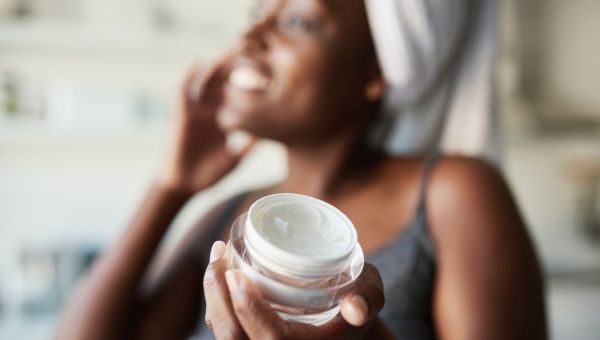7 skin care mistakes you don't have to make

Think your complexion is the product of your genes? Your daily health and skin care habits can make or break your appearance. "Only about 10 percent of how your skin ages is genetic, so you have a lot of control," says dermatologist Doris Day, author of Forget the Facelift. Seemingly small skin care mistakes can add up to a lot of premature aging and damage. Here are seven of the most common skin care blunders, and how to fix them.
Medically reviewed in April 2020.

Smoking Cigarettes
Like its effect on the rest of the body, smoking is toxic to your skin. "It is absolutely the worst thing you can do to your skin," says Ellen Marmur, MD. "Smoking ages the skin and reduces its ability to heal." The good news is that kicking your tobacco habit will undo the damage smoking has done to your skin. "If you smoked for 10 years and you quit for five, you can remove all the damage," Marmur says. According to Day, all it takes is a few smoke-free weeks to see improved skin tone and clarity.

Not Wearing Sunscreen
"90% of wrinkles are from the sun, so SPF is the best anti-ager," Day explains. The biggest mistake people make is not using enough sunscreen and not reapplying it often enough. Use enough to fill a shot glass, and reapply every 40 to 80 minutes when you're in the sun. When you're only outdoors before work and on your lunch hour, you still need SPF protection. "I have 90-year-olds with the most perfect skin where the sun never shines, while the sun-exposed skin is mottled, dry, and discolored, so daily exposure does add up," Marmur says. The SPF you apply in the morning will get you to work, but it won't protect you on your lunch hour. For touchups, Marmur and Day recommend SPF mineral powder.

Ignoring the Skin Around Your Eyes
Oversized sunglasses aren't only a must for incognito celebrities. Everyone should be wearing them to help prevent sun damage around the eyes, Marmur says. Believe it or not, eyelids are one of the most common places to find skin cancer. You can even get melanoma in the eyes. Chronic UV exposure can cause premature aging around your eyes. Tear-free baby sunscreens can help protect delicate eye skin, but sunglasses and broad-rimmed hats will shield and protect your vision to boot. Wear sunglasses whenever you're outside—year-round, and even on cloudy days. Look for shades that offer more than 95 percent UV protection. Lenses that offer 100 percent UV protection may be labeled "UV400."

Not Getting Enough Exercise
Think your waistline is the only thing a couch-potato habit can hurt? A sedentary lifestyle can also add years and signs of premature aging to your face. "Exercising is one of the best things you can do for healthy skin," Marmur says. Working out boosts circulation and blood flow, which gives skin a healthy glow. "When exercise turns you pink, you're dilating all the blood vessels in your skin and washing the area with nutrient- and oxygen-rich blood," she explains. Plus, research suggests that exercise helps skin repair itself and may even protect against skin cancer. Here's Marmur's Rx: 30 minutes of aerobic activity 3 or 4 times a week. Be sure to wear sunscreen if you exercise outdoors.

Not Getting Enough Sleep
The worst thing you can do to your skin, besides skipping sunscreen, is deprive yourself of sleep. It's called beauty rest for a reason, Marmur says. "If we don't get a good night's sleep, we look ragged the next day. When you're sleeping, your body goes into parasympathetic mode, where energy is shifted away from the core and given to the rest of the body to rejuvenate," she explains. As for the whole sleeping-on-your-face-causes-wrinkles debate, "if you have sun damage, and you keep bending your skin the same way, lines will get etched into the face," Day says. However, it's more important to get a good night's sleep in a position that's comfortable for you.

Not Giving Good Products a Chance to Work
Another big "no" in the skin care department is changing products every week looking for "a miracle in a jar," says Jeffrey Dover, MD, associate clinical professor of dermatology at Yale University School of Medicine. According to Marmur, they really take about 3 months to kick in. "The lifecycle of skin is 28 days and that of collagen is much longer (about 2 to 3 months), so you need to be patient," she says. Which products should you invest in? "Anyone who can tolerate a retinol should be using one," says Day, who recommends over-the-counter anti-aging retinol products. "I like niacinamide for treating redness and sun damage on sensitive skin." People with acne should try salicylic acid.

Making Your Own Diagnosis
"Eczema, redness, rashes, allergic reactions, and acne breakouts are all treatable conditions," Marmur says, "but you may buy products that make the skin even more irritated than before. It's really helpful to see a dermatologist to help you get on track," she says. In terms of everyday care, Marmur advises patients to wash their skin with a gentle cleanser and remove all makeup before bedtime, use a skin moisturizer, and wear sunscreen. See your dermatologist once a year, especially when there's a flare-up. As you get older, your skin changes, so the skin care products you need may change as well.
More On


video

article


video


video


video
